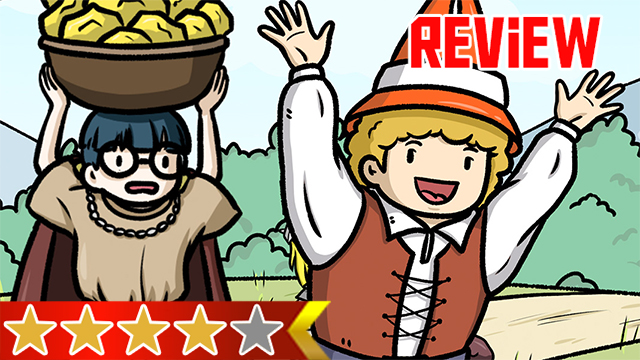It can be difficult to truly understand what privileges one might have, but being born into wealth is an easy one to spot. However, if you listen to a TED talk from a businessman that only received a paltry $500,000 to start his own business, they’ll be glad to tell you about how difficult their path of going from rich to richer really was. GUILDMASTER STORY follows…
-
Fantastic, often hilarious dialogue.
-
Sharp writing that makes a real point.
-
Gameplay that reinforces the narrative.
-
Puzzles grow monotonous near the end.
-
Loses any sort of difficulty on PC.











